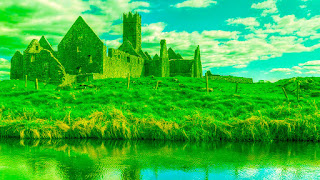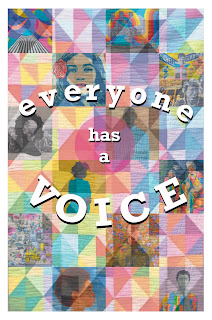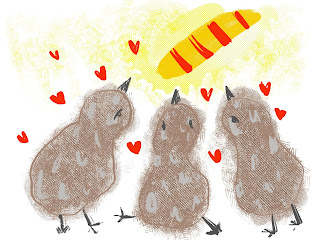Digital Images. Bam.
 |
| Dude! My pix don't show how GREEN it really was!!! |
1. How do digital images play a role in your day-to-day life?
Digital images have been seamlessly integrated into everyday life. At this point in the timeline of photography and ubiquitous imagery, every-single-thing is digital. It is a miraculous spectacle to have film, prints or (impossibly!) unretouched photographs.
2. In your personal life?
In my very own personal life, digital images are the constant. Not a day goes by without utilizing a phone-camera. Besides the taking of pictures, digital images are constantly (constantly!) employed in the form of gifs, ads, banners, online shopping pictures. Emojis? Anyway. Constant.
3. In the way you experience your world?
Upon reflection, I have to admit that I'm more or less jaded and indifferent to the vast majority of digital imagery that blasts by my eyeballs. I'd like to think that I tune out the garbage but there's no way that all the trash gets filtered out. Besides, if our cameras are bonkers good at showing every single detail but we aren't flawless does that mean we have to see all of our imperfections? Um. No, thank you.
 |
| LEMON get away from the HD camera! |
4. What are your thoughts on ethics and aesthetics as it relates to photojournalism and digital imagery manipulation?
Let's be honest: with the advent of photography came the seeds of photographic dishonesty. Before photography, everything was drawn, painted, printed by hand and so the implicit trust or mistrust of the creator of these images came along with their presentation. But with a photograph, there is this misconception that the machine is capturing the image. Well now, the camera captured this image and so it must be accurate. Since the very earliest days of photography, images have been altered; whether to change the narrative or the aesthetic of the image seems more or less irrelevant. A change is a change. There is a completely permeable line between art photography and photojournalism. In some ways, it would seem that there is no distinction whatsoever between photographs of any kind. What if any organization calling itself a news outlet was held to the standard of never ever altering imagery in any way? That would be an impossible ideal, but its a pretty good one.
5. What are your thoughts on these examples of manipulated images?
Holy mackerel there are countless examples of manipulated images. The question as to whether the art director even considered the manipulations relevant hangs in the thick, smog-filled, photoshopped air. The word "photoshop" is so integrated into our vernacular that Grammarly doesn't even suggest I capitalize it to denote its origin as an Adobe product. That our entire history of the past two hundred years has been influenced, pressed, manipulated and perhaps even willfully tricked by art directors and propagandists of all kinds cannot be disentangled from the unfolding of history itself. The plausibility of any reality calls into question every. single. image before us.
6. Out of all the examples, which one do you believe has the most impact? Why?
This story is still playing out- some of the images of major world events and leaders that have been manipulated are still having a ripple effect throughout the globe. The image of George W. Bush holding a children's book upside down seems particularly nefarious on account of it reinforcing a stereotype that had already been sown amongst his enemies. Whether or not the man was incompetent or bumbling was of so little relevance at the time of this photograph being taken, altered and sent out to all the eyeballs of the universe. He was the leader of the free world and presenting him in this way brought no benefit whatsoever to its citizens. Folks who hated the guy likely didn't much care that it wasn't real. The dude's an idiot, see? Toldja. In light of the current White House administration it kind of seems extra-petty now, doesn't it?



Comments
Post a Comment